

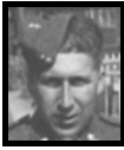
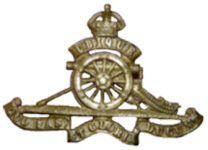
No.1092634, Gunner, Eric George POOLE
Aged 27

|
Eric George POOLE was born in Haverhill on 3rd June 1915 (Risbridge Q3-1915 4A:1544), son of Frank and Edith Webb POOLE (née PLUMB). Eric met Dorothy Ruth Smith, always known as Ruth, daughter of George and Beatrice, née Hughes. They were married at Hundon church on 28th October 1938, with Ruth's sisters Mona and Doreen as bridesmaids, the reception was held in the Hundon Church School Room. They set up home at 52 Mill Road, Haverhill, where Ann was born and lived, until she married Alex Chapman of Castle Camps. Ann was a tailoress, adding "we all worked at Gurteens, I was there for 41 years". Ann (pictured below with her father) recalls: "Dad was supposed to be in the Suffolks, but caught scarlet fever and went into the Isolation Hospital up Clements Lane. He eventually joined the Kent Yeomanry". In the 1939 register, at 52 Mill Road, Haverhill, were Eric, a GPO night mail driver and his wife Dorothy R [13-8-1915]. His parents were at 15 Recreation Road, Haverhill. |
Eric's wedding and with daughter Ann
By May there was a greater threat from the Axis forces in Egypt so Eric and the Kent Yeomanry were sent there, via Palestine and the pyramids at Cairo. On 6th June
after 10 days and some 1600 miles they occupied defensive positions on two small hills near Tobruk, just across the border in Libya. The sound of enemy guns could
already be heard. Several days of heavy fighting soon followed and with their positions over-run Eric and his colleagues became Italian prisoners of war at camp 154.
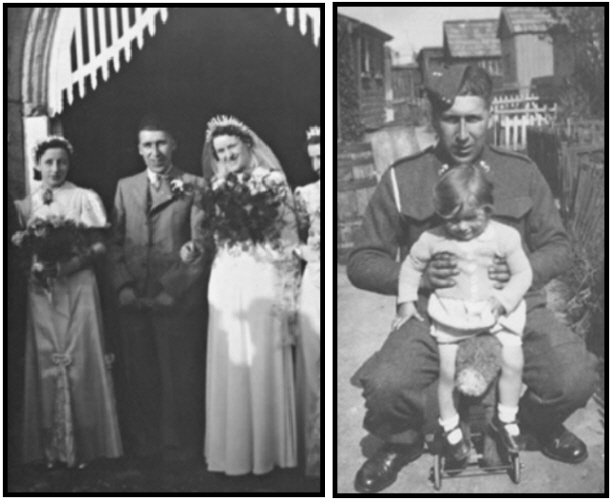

The Kent Yeomanry, aka 97th Field Regiment of the Royal Artillery, saw action in France before withdrawing to Dunkirk in May 1940. Back home they were on defensive
duties in Wales before moving to Essex in early 1941. In August they embarked at Glasgow on board SS Orontes their destination unknown.
They spent 64 days at sea, covering some 12,000 miles, via Cape Town and Bombay, before disembarking at Basra in Iraq where they formed part of the 10th Indian Division
to defend the oil fields from possible attacks by the Turkish army. Christmas 1942 was spent near Baghdad, a strange experience for Eric, who
was an army lorry driver (pictured 2nd right).
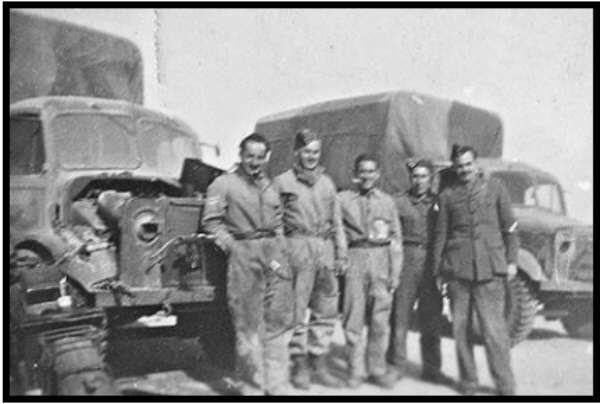
It was from here that Eric sent postcards home, the last on 26th Oct 1942 (pictured) 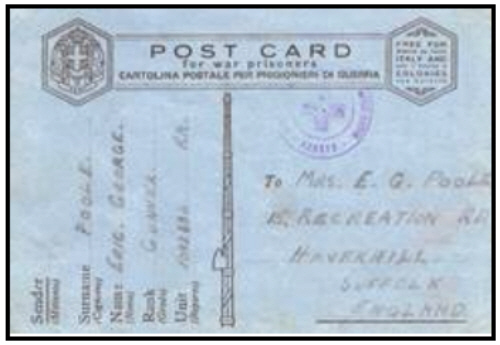 .
At Tripoli, Eric along with 814 other Commonwealth POWs boarded the Italian cargo vessel S.S. Scillin en-route to Sicily.
.
At Tripoli, Eric along with 814 other Commonwealth POWs boarded the Italian cargo vessel S.S. Scillin en-route to Sicily.
On the night of 13th November, they headed straight into the Sicily Invasion area and a line of protective submarines. It carried no flag or marker to indicate it was
carrying Prisoners of War. The SS Scillin was spotted by a British submarine, HMS Sahib, which surfaced and ordered it to stop. When it did not do so the submarine
fired a single torpedo and the SS Scillin sank within a minute. Only 26 men survived.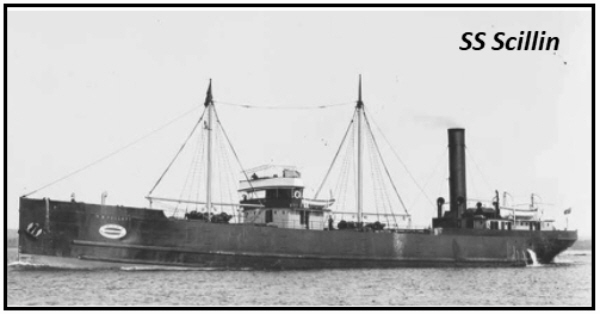 Letters to his wife Ruth followed from the Officer-in-Charge, Royal Artillery Records and on 27th August 1943 one read:
"A further report has been received from a reliable source to the effect that your husband was believed to have been on an Italian ship transporting Prisoners of War
from North Africa to Italy when the vessel was sunk in the Mediterranean. It is regretted that there is no alternative but to revert him to the "Missing at Sea"
category until definite news is received."
Letters to his wife Ruth followed from the Officer-in-Charge, Royal Artillery Records and on 27th August 1943 one read:
"A further report has been received from a reliable source to the effect that your husband was believed to have been on an Italian ship transporting Prisoners of War
from North Africa to Italy when the vessel was sunk in the Mediterranean. It is regretted that there is no alternative but to revert him to the "Missing at Sea"
category until definite news is received."
A further account from Jan Lettens on www.wrecksite.eu on 11-11-2020:
On November 13th, 1942, at Tripoli, 814 Allied POWs were ordered into the Italian SCILLIN's cargo hold, which was only suitable for around 300. The result was severe
overcrowding and insanitary conditions. More prisoners would have been loaded, but the British military doctor (Capt. Gilbert, RAMC) made vehement and repeated
protests. Some reports state that a further 195 POWs were disembarked before SCILLIN sailed and that there were some 200 Italian troops on board; others dispute these
points saying that the only Italian troops on board were guards and gun crews and the surplus POWs were never actually boarded. On the night of 14 November off the
Tunisian coast SCILLIN was ordered to stop with gunfire by the British submarine HMS SAHIB. She did not respond, so her Captain decided to torpedo SCILLIN. Those in
the hold had little chance of survival as the torpedo had hit the hold itself and the ship sank rapidly. SAHIB was able to rescue 27 POWs (26 British and one South
African), the SCILLIN's captain and 45 Italian crew members, before the arrival of an Italian warship forced her to leave. Only when survivors were heard speaking
English, did SAHIB's captain realize that the SCILLIN was carrying POWs.
The Ministry of Defence kept this incident a closely guarded secret for fifty-four years, telling relatives that the victims had died while prisoner-of-war in
Italian camps or lost at sea. It was not until 1996, after repeated requests for information from the families of the drowned men that the truth came out. Read more
at wrecksite: https://www.wrecksite.eu/wreck.aspx?31791
Ann can remember her mum reading a letter and crying. In the following January, Ruth received the official notification of Eric's death.
He is commemorated on the Alamein Memorial, Egypt, on a CWGC figures show 46 of his unit dying that day.
25 pounder and its quad tractor photo: New Zealand War Graves Project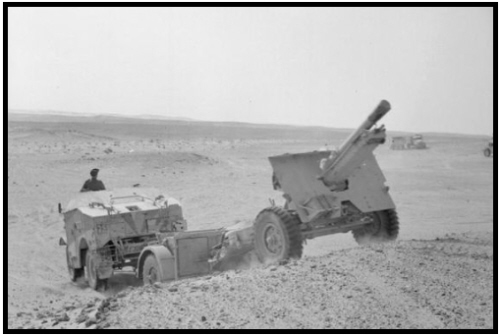
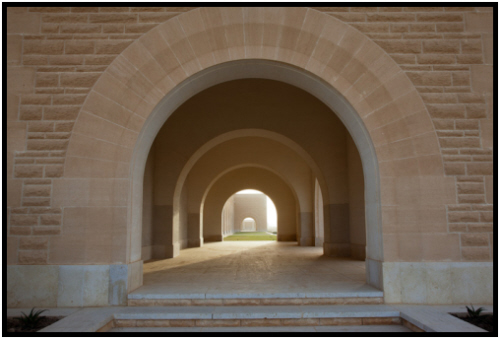
click here to go to the Commonwealth War Graves Commission website for full cemetery/memorial details